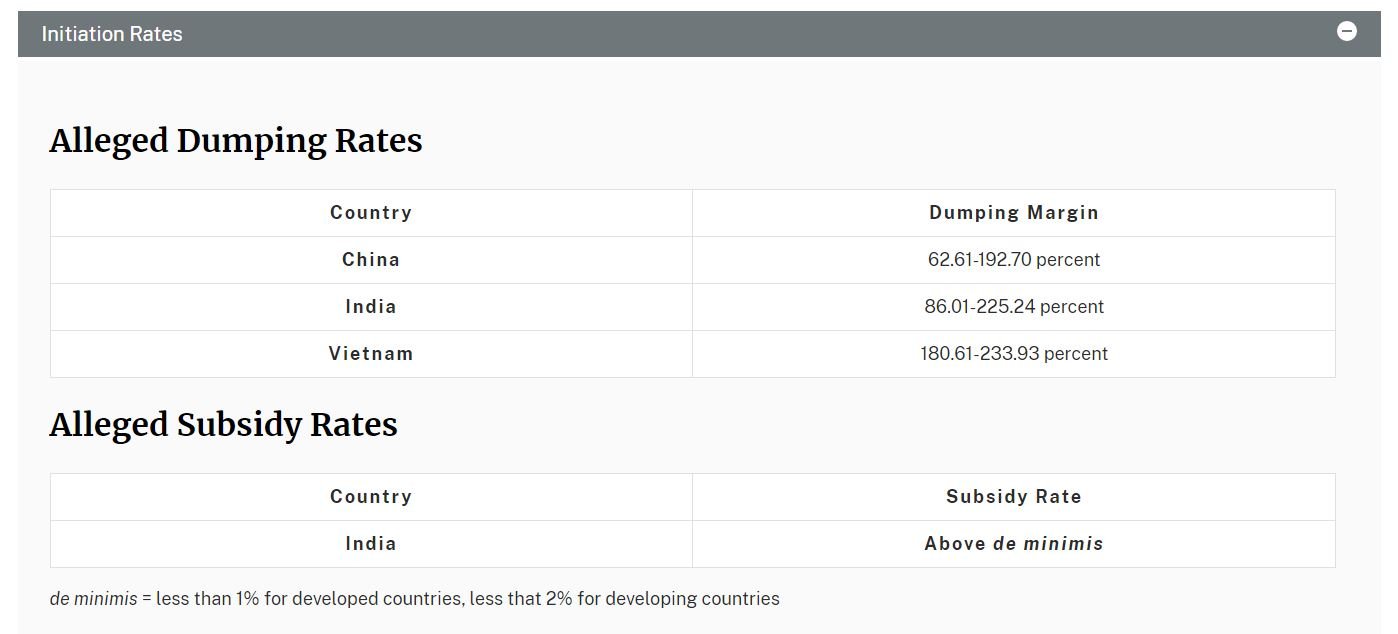The U.S. International Trade Commission (USITC) today determined that revoking the existing antidumping and countervailing duty orders on imports of 1-hydroxyethylidene-1, 1-diphosphonic acid from China would be likely to lead to continuation or recurrence of material injury within a reasonably foreseeable time.
As a result of the Commission’s affirmative determinations, the existing orders on imports of this product from China will remain in place.
Chairman David S. Johanson and Commissioners Rhonda K. Schmidtlein, Jason E. Kearns, Randolph J. Stayin, and Amy A. Karpel voted in the affirmative.
Today’s action comes under the five-year (sunset) review process required by the Uruguay Round Agreements Act. See the attached page for background on these five-year (sunset) reviews.
The Commission’s public report 1-Hydroxyethylidene-1, 1-Diphosphonic Acid from China (Inv. Nos. 701-TA-558 and 731-TA-1316 (Review), USITC Publication 5386, November 2022) will contain the views of the Commission and information developed during the reviews.
The report will be available by December 16, 2022; when available, it may be accessed on the USITC website at: https://www.usitc.gov/commission_publications_library.
BACKGROUND
The Uruguay Round Agreements Act requires the Department of Commerce to revoke an antidumping or countervailing duty order, or terminate a suspension agreement, after five years unless the Department of Commerce and the USITC determine that revoking the order or terminating the suspension agreement would be likely to lead to continuation or recurrence of dumping or subsidies (Commerce) and of material injury (USITC) within a reasonably foreseeable time. Read More→
https://www.usitc.gov/press_room/news_release/2022/er1109ll2012.htm




